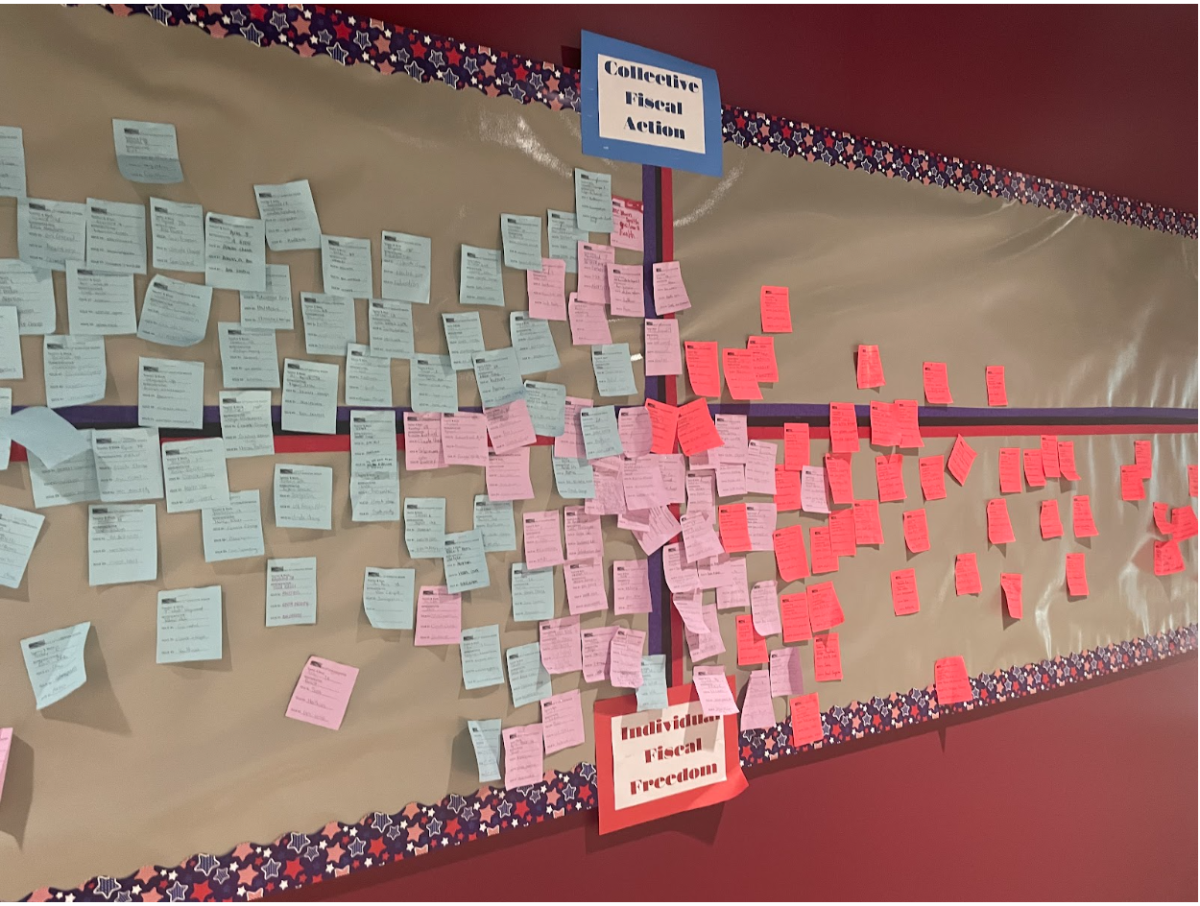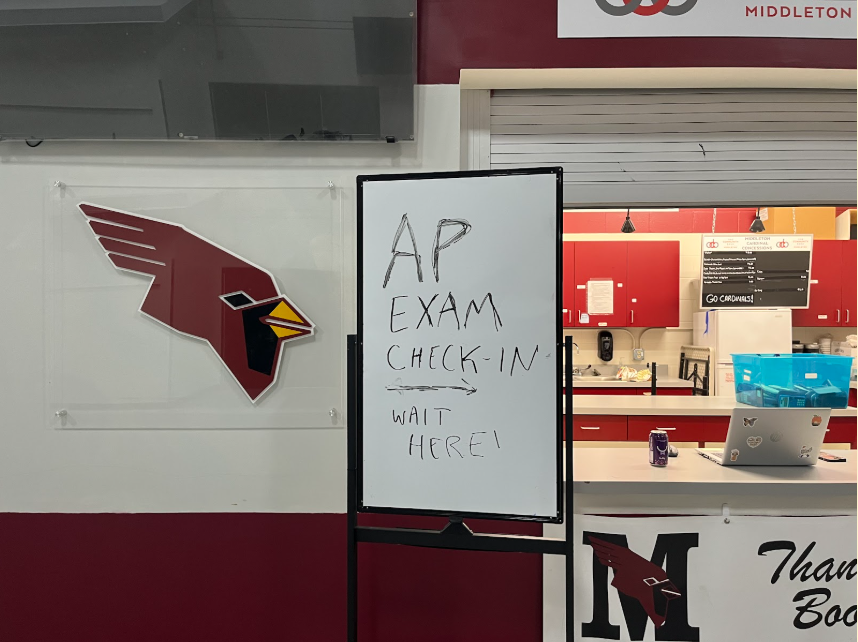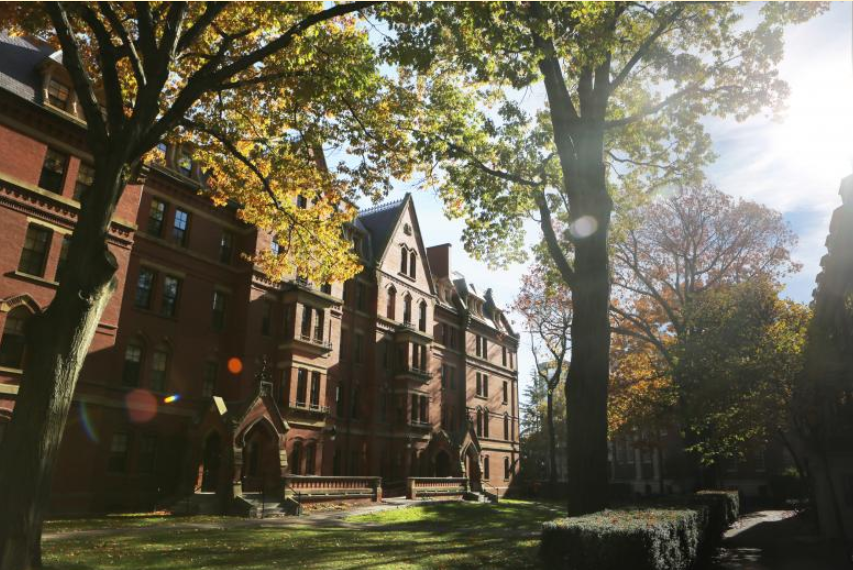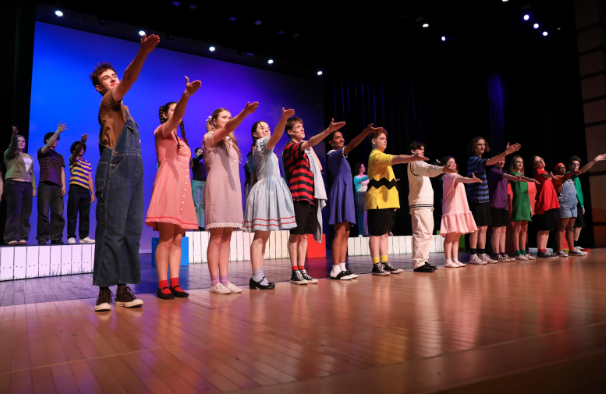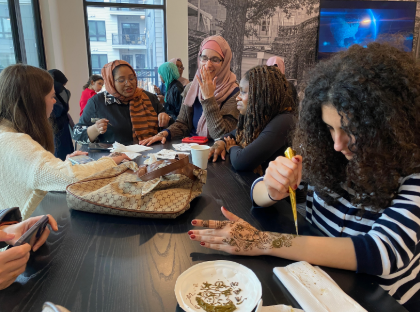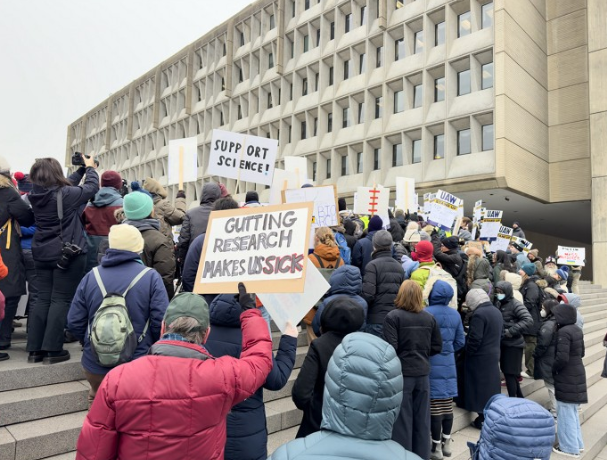On November 7th, students at Middleton High School (MHS) voted for their Majority Leader, Minority Leader and Speaker of the House. The elections were held as part of the “Legislative Semester.” More commonly known as “Gov,” the semester-long course is a required credit for all students. Unlike ordinary social studies classes, the Legislative Semester is conducted through a simulation based on the U.S. Congress. Students act as representatives, using parliamentary procedure, conducting debates, writing bills, and then voting on them.
Andrew Hartman, one of the Legislative Semester teachers, credited the course’s creation to Steve Arnold from West Chicago High School, whose daughter Kate used to teach at MHS. Arnold, who would take his students to the state legislative sessions in Springfield, Illinois, was inspired to bring the legislative process to the classroom. At MHS, the Legislative Semester fills the Wisconsin state civics requirement.
“We selected this simulation because UW Madison has done some longitudinal studies on it that demonstrate students who go through the simulation tend to be more likely to vote, engage with their elected officials and participate in our democracy,” Hartman said.
Raghvi Sethi, a junior participating in the Legislative Semester, explained that the year started with analyzing past bills and debating over them. Recently, students have now transitioned to writing bills.
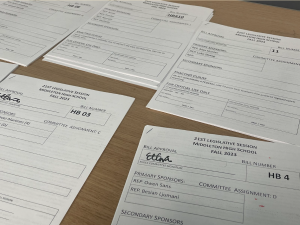
According to Hartman, students are in parliamentary procedure from day one, beginning with debates on topical issues such as drinking age and firearms— topics that students have comfortable background knowledge on.
“Eventually we ratchet it up [to] where there are more complex issues where students need to learn research skills; they sort of have to get out of their comfort zone a little bit,” Hartman said.
Though intimidating, students have found the ability to write their own legislation an eye-opening experience. Sarah Larsen, a junior, observes that the Legislative Semester gives students a voice and an opportunity to express their opinion about things that they are interested in through bills.
“As I’m taking the class, I’ve been more informed on the government than ever before,” Larsen said.
Along with bill writing, students have recently conducted elections for Majority and Minority Leader, as well as for Speaker of the House. Hartman explained that these student leaders will help facilitate full sessions and committee hearings by encouraging debate in simulations that process legislation. Ultimately, student-written legislation will be voted on to determine what bills are enacted.
Apart from Majority Leader, Minority Leader, and Speaker, students can also be elected to the Rules Committee. Dhriti Prakash, a junior on the Rules Committee explains that one student is elected from each class, and the committee meets every couple of ASRs to run the “behind-the-scenes” of the simulation. This includes preparing candidate debates for the elections, forming committees for course-wide committee debate and handling student complaints. Prakash mentions that being on the Rules Committee is her favorite part of the class.
“I think if you’re enjoying the class, taking on a leadership position is something you should really look into,” Prakash said. “It’s a lot of fun.”
To help the Rules Committee and teachers run the Legislative Semester, a group of seniors act as “tutors” to guide students through the process. Dima Llanos, a senior tutor, explains that tutors assist students with bill-writing, give general guidance, run simulations and handle logistics such as vote-counting for elections.
Tutors also get to take on roles in the simulation. Llanos said that she acted as “a women’s lobby organization to help throw curveballs in the election process.” To become a tutor, students must apply through the tutoring program before being assigned to a class. Llanos expresses that the best part about being a tutor is seeing students get passionate about their bills.
Hartman, who’s been teaching the class for ten out of its eleven years at MHS, said that there have been quite a few changes since its first year of running
“We’ve had a big focus on making it more equitable and accessible for students,” Hartman explained.
He described some of the major changes, which include changing the first-come-first-served bill selection process into one based on a trivia competition, allowing students to participate in live candidate debates, and more recently, incorporating AI into the bill-writing process.
Hartman also noted the changes within the student population participating in the Legislative Semester.
“When Donald Trump ran for president and was elected, it changed fundamentally everything: the tone, the tenor, the rhetoric of society— and students. And Gov just got really toxic and super nasty,” said Hartman.
Hartman also acknowledged that the COVID-19 pandemic and resulting shift to online learning impacted not only the course, but the way that students engaged in productive conversation.
“That hybrid year, we had like 50 percent of students here every other day.,” said Hartman. “The lack of civil discourse in our democracy was definitely filtrating its way into the rhetoric of our students…it was the most challenging year I’ve ever taught my entire life, no doubt.” .
However, during the recent cycle of curriculum renewal starting in 2019, the Legislative Semester was put on a pause to modify it from a sophomore to a junior year course. Hartman said the pause offered an opportunity to do more direct instruction and deliberate curriculum design. The result? A transformation in the current semester.
“I don’t see the vitriol and the venom nearly as much as I did during the 2016 to 2021 years,” Hartman noted.
For Hartman, it is rewarding to see students’ opinions be challenged and change over the course of the semester, especially because many of the bills students write are very personal to their own experiences. At the same time, he finds it sometimes difficult to maintain neutrality on topics he is extremely passionate about.
As Larsen explains the bill she’s currently writing on the tampon tax, it’s clear that students do indeed care deeply about their agendas.
“This is a bill that addresses an extra “luxury” tax added onto feminine hygiene products because they’re considered non-essential when it really is essential. A period is a non-negotiable thing for most women,” Larsen said.
Larsen’s one critique about the Legislative Semester is the lack of political party diversity. In her opinion, simply having Republican, Democrat and Independent is not enough to fully represent the political spectrum.
Sethi’s least favorite part of the class, on the other hand, is how close-minded some students can be.
“A lot of people aren’t willing to change their opinion. When you’re trying to convince people of a position, it’s really difficult to actually get them to listen to you,” Sethi said.
But both Sethi and Larsen agree that the Legislative Semester can be a lot of fun if you are willing to participate. Similarly, Prakash’s advice for incoming students is simply to join in.
“Make sure you’re engaging with the class because you’re going to enjoy it. Otherwise, there’s no homework. There’s no tests. It’s not a regular structured class. So it’s really all about your participation, and that’s what’s going to help you learn,” Prakash commented.
Llanos said it more simply, “The more you get involved, the more fun it is… so get involved.”
Hartman’s advice is to always keep an open mind.
“You don’t know what you don’t know. And what defines you, as a human being and a Gov student, are the experiences that you have had, but equally those that you have not had,” he said.
For more information, visit the Legislative Semester website.



